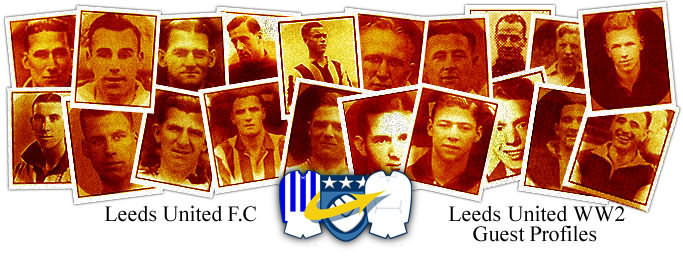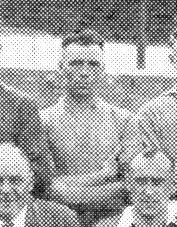

Dewis: George Renger (George)
WW2 Guest: 1943-1944
(Leeds United War-time Guest Player Details)
Centre Forward
Born: Burbage, Leicestershire: 22-01-1913
Debut: v Huddersfield Town (a): 25-12-1943
Height & Weight: Unknown
Dewis started his career with Stoke Golding and then Nuneaton Town but in October 1933 he
joined his only Football League team Leicester City, who were then in the First Division. It
took a long time for Dewis to became the first choice striker, something that he did not
achieve until the last seasons before the Second World War and when the Football League
fixtures were suspended for the duration of the War he had scored twenty-five goals in
seventy-two League games and three more in seven F.A. Cup ties. During the war Years he
played for Leicester City and also guested for Leeds United, Chesterfield and Sheffield
United. With Leeds he played the last fixture of the 1943-44 Football League Northern
Section (First Championship) and the first game of the Second Championship which were played
on Xmas Day and Boxing Day 1943 respectively both games were away and Leeds lost both. They
went down to Huddersfield Town at Leeds Road 0-3 and then Bradford Park Avenue by 1-2. With
the Foxes he was quite prolific, scoring ten times in fifteen games in 1939-40, twenty-four
times in thirty games in 1940-41 seven goals in just three games in 1941-42, then four in
six games in 1942-43, eight in seven games in 1943-44, five in seven games in 1944-45 and
three in ten games in 1945-46.In his guest appearances , other than at Leedshe played twice
for Chesterfield in 1941-42, without scoring, but gave Sheffield United good value in
scoring thre goals in just three games in 1944-45. Afterthe War Dewis returned to Leicester
City, who by then were in the Second Division and was the regular Centre Forward for two
seasons but then only played one game in each of his final two seasons before retiring in
the 1949-50 having scored twenty goals in forty-four League and three goals in six F.A. Cup
ties after the War. He joined the Leicester coaching staff and is credited with the
emergence of Peter Shilton. He died in 1994.